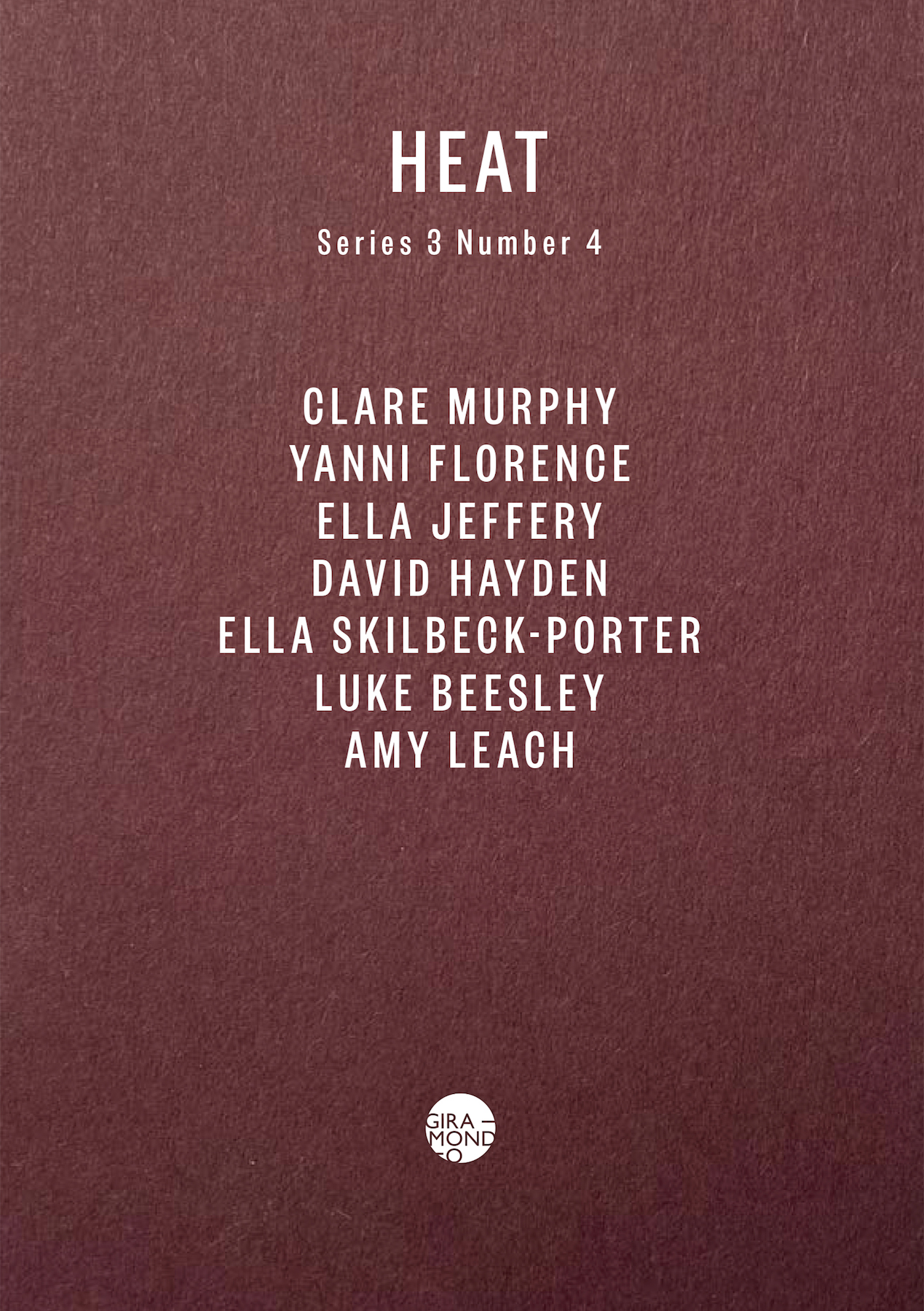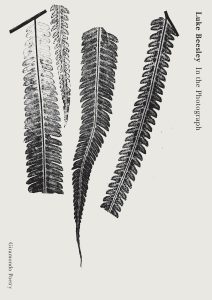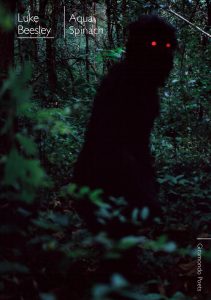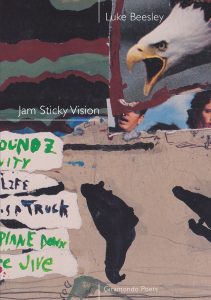Two Stories
Time Piece
I was rushing out of the house in the morning. The night before, I’d calculated the time it would take to drive out around peak hour next morning. It was. And the traffic canted into intersections via assumed breeze, invisible momentum that took me back to a very small childhood fear of the day’s adult inevitability. Or perhaps it was more about onrush: each adult in their not-so-much uncaring but distracted trajectories, en masse, racing forward, and that dawning, really, on a young person.
In primary school I would fear assemblies. Kids emerging from classrooms to form endless concrete-grey and blue lines that happened to be, these years later, the same colour of the cars that slid forwards – traffic right-to-left ungainly against the momentum of these sentences. I can sense, as I leave the house –
see, the inevitability of writing, its pressure. The sharpened nib decisive, flaking in the morning’s axis (that chance).
I am to spend the day at a full stop. The cars stop, and we are given the opportunity to wash them. I find I have a sponge in my hand when I jot these thoughts down. It is heavy already with soupy water: a kidney-shaped sponge much like the colour of the lines at the top of this page – pink-ruled lines above thin-blue veins below. Or, I should say, a thin vein-blue where I enter and join the rush of traffic.
I’d quickly decided, next day – this one – that I would see if my friend Daniel Read was free to play tennis. I was able to organise this easily. The idea congealed in a carpark. SUVs reversing nicely, the sun glinting off their metallic sides as they swivelled. A mini had snuck in like the dog or kid or goof in romantic comedy, to lighten things, and we laughed.
But who are ‘we’? I guess there – from childhood, and even in the womb, I don’t know – begins an oval. Theatre in the round. And we, us, are the potential. Inertia with momentum.
The previous evening I was reading a poem where the repeated word ‘shadow’ (x3) was used to mimic the sound of the heart. Clever. There is not much we can hide underneath a coin. Eventually there is a system beneath the ‘manhole’ on the footpath, but it takes some time for this to emerge. Lovely mystery. That labyrinth, as it happens, must be part of the frightening ‘we’ that we carry around on our peripheries, that laughs or withholds change. Withholds change! When the traffic-light window washer decides to give you a windscreen wash, after all, to coax you, despite you miming no. That feeling.
What I failed to mention was that Read – when I asked if he was free on this Friday – asked if, before tennis and a coffee, or coffee and tennis (it turned out to occur after our black stovetop coffee and before tennis), I would help him move a boulder.
Read had not long before moved to the small town of Full Stop, and his house on the outskirts – a truck-transported old schoolhouse – tilted down the valley. He had been working on the landscape, collecting native trees and choreographing at the house’s margin. He had shaped what we might call the pencil of his attitude using books on theory – behaviour change – learning to sit with an old poet friend for an hour to explain the clunky nature, the dimples, of the rocks themselves.
They were rocks within rocks – ha! Pebbles seemingly attached to the outside of his memory, or was it therapy? Barnacles. Bare-knuckled, we were to twist the rock, together, using the limits of our empathy, for it had been a long time since we’d seen each other.
Read, later that day, leveraged the rock with a crowbar. My hands twisted swiftly, opening a bottle of fizzy water, ninety-degree angle, into the town, searching for shade given we were to play tennis later in the day and I was concerned for my racquet’s string tension etc., and I grazed my palm. Two round red wounds the size of a watch battery. They bled, but not too much – for most of the morning they were wet circles.
Immediately, unseeing, Read suggested another angle, permutation; he was so profoundly concentrating on our conversation, I think, that he hadn’t noted that I’d grazed my hand in small, watch-battery-sized ways, and I’d only glanced at my hand, at that point, like quickly checking the time itself, so I’d not fully registered the wound, and there was an old school day swimming to my memory, or back further – insecurity – or was it a gesture to show that I too had lived in the country, knew of pain, that my muscles hadn’t metastasised. An instinct to push on, ignore the pain. We did eventually arrange that rock into a plan that Read was comfortable with. He had just told me a sequence of irritating events: his car had slipped out of registration – lapsed is the word I’m looking for. Also, his neighbours were moving out and their dog was resisting acupuncture. Read’s brother, too, had chronic pain and his health had spiralled.
I was sitting on Read’s couch with said stovetop coffee, listening, when he paused for quite some time. He pointed to a sapling he had planted the week before but that had been overwhelmed by treatment, fading to a pale version of itself. When I write treatment, I mean to intuit the word, our conversation, and the conversations had by people all over the small town we sat on the edge of: an imperceptible form of consciousness of the populace itself.
But who needs it? We ask, and yet it is addictive. The breeze picking up, pushing through a flyscreen and tickling the very fine hairs on my ear. Something I didn’t even notice!
But who are we? When you drive in towards a valley town, morning, and the light is still settling itself, purple. When the sun is stretching to the chrome, acting on an origin-yellow, or orange, is when you begin to know a collective. But then again, often, that frisson, cinematic, is not quite the location of the town anyway. Just a collection of trees by a river – a fleeting battery-powered elegance, but you have moved on by then and shaped your life around it.
Read cried. Or I wondered if he shed a tear. It was a twist in emotional grammar – subtle anguish, real elegance, the sun turning – and I paraphrased hard, hearing him out. He knew none of this would add up, but I showed him the face of my watch anyway. I offered him the chance to push a few buttons, make a calculation, and we finished our coffee and decided to move the rock before heading to tennis.
Cartoon Lake
I was sitting on a park bench in winter waiting for my spine to register the chill. The sun was on the side of my face, and I could hear a soccer match. I tried to follow each player without looking at the oval; the players scattered and flickered, and I wanted to be the literature, the story – was sick of merely gusting at the side of it. I figured the first step would be to get cold, to be still, and yet activate a thought. To run my fingers.
The players set off and stretched in a ballet-twist. Or I tried to hold myself elegantly like tai chi, standing, supporting myself with one hand and shuffling close to the corner post, well into the outline of the oval. I kept my eyes closed, curious about the overflow of material movement nibbling at the out-edge of what was a pool. Animals – birds and striped horses, cats with sandy beards, a quick rusty leaf upturned and gliding beside a frantic lip.
Way up in the arctic regions there was a group of ‘men and women’ prepared to map what was, at the time, an A4 page. They took fine scissors and with elaborate sunglasses laughed at their own reflections: women and men who sliced through the ice and snow and arrived with pens and rulers and soothed the barren contours, always imagining the land mass below the ice. They moved forward and held up stainless-steel cups and rented cars as soon as they got back to the airport.
They’d returned completely stumped by the routine of a manual car. One hand went out to steer, the other westwards to mark the changing of the days, as if they could shuffle between those days (as they seemed to do, out on the ice).
One day followed another until they were home wiping their feet on a cat, or cars whining by like the sound of a cat. Cats daring to skip across the streets between cars, and shadows tempting drivers to follow them in the corner of the drivers’ eyes. They, these shadows, were tranquilisers – long sharp darts kept in padded stainless-steel pods (in the glovebox). The dart made a decompressed gulp through the air as the animals lifted their donkey heads, suddenly hit, and folded. Cats squeezed past the tiny round legs of the men and women wiping their feet courteously on the cats escaping, polishing their shoes up beautifully. Orange cats squirting past, like ink, a splash cartoonists make!
All this, an act of mapping the land.
I itched my hand. I itched my head with the end of my pencil and ran the pencil along the page itching and bothering away, ten and twenty times or more looking up to commit a line against my own reflection. It took off below a crease that had emerged a decade earlier below the very ballpoint of my eye – that little step towards where tadpoles leapt, stretching across the open upper face.
Fold marks. As if you could turn your eye in, brittle on a piece of musk. And relief – massage. Steaming hot day and the masseuse runs an ice cube along the upper outline of your eyebrow following it away from your eye. Mist caught in the branches. Below lower branches of the trees, young parents run up and down the touchline with exaggerated arms, throwing them in opposites to the slow stretch that is the line out over exercise, or, I should say, I’m writing about soccer.
It’s half time.
Oranges severed in examples of the subject. Mouth-sized sections stinging at the corner of the mouth, the writing went. Squinting across the page in flung pebbles to attract the attention of, or to disturb, a body of water represented by a large sky-blue stain off the side of a town marked by a single freckle.
I have a mole on the inside of my hand, see, which sits at the centre of the story.
I feel guilty about my mood, which is scattered and listless. In truth, the waterhole is a gravy brown. Ribs stretch striped thick loose skin of the zebras, and I’m walking across the road. I’m on a traffic island in the middle of Punt Road with a takeaway coffee. I’m on the island for three gulps, and the traffic passes me the way theatregoers find their seats, squeezing past tucked legs, brushing and excusing themselves as we hold our calves close to the plush red seats before stretching them out again and turning our phones off, allowing the stage lights to brush over us – an aeroplane passing overhead, its pale underbelly. We even dribble! Our thoughts disperse and our mind is left dripping – not a ripple. Breeze. A few birds scribble back and across, but its otherwise a show of quietude. I’m on my stomach, peering through the hole in my Frisbee. I see a building going up across the street and kids washing cars with a toothbrush. The silly tickling arm of an excavator, bright flecks of orange and yellow on the chests of the workers, would spin and ricochet off the long glass doors of our apartment block beyond us. I try to catch my reflection in those doors. I am on my stomach, and finally the subject.
Now and then I look up to the soccer or swivel sideways to scratch my stomach or realise I’m adhered to the illusion-point that text makes at the top right corner of the page.
I’m looking up now and then, from a book, to imagine a printed page.
I have my eye on soccer and it pulls in its socket. I’m drawn towards it like a tug – rubbery noisette with the wide wristy-thick metal cable in its mouth, bobbing and whipping and copying, oscillating, pages riddled and folded and placed in envelopes and posted back to my open palm, reaching at the limit of a stretch – pinned up the side, across the back, in the park.





